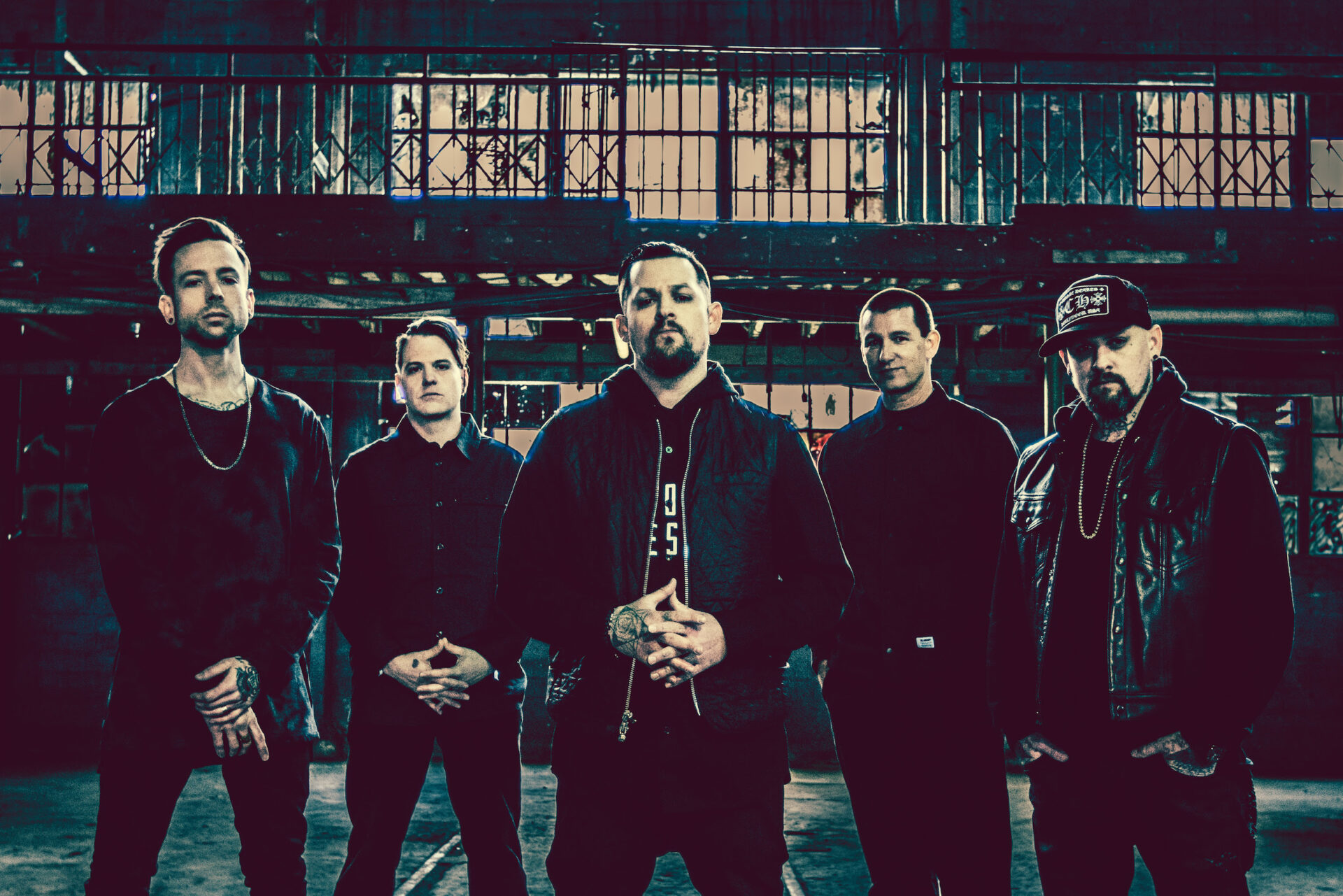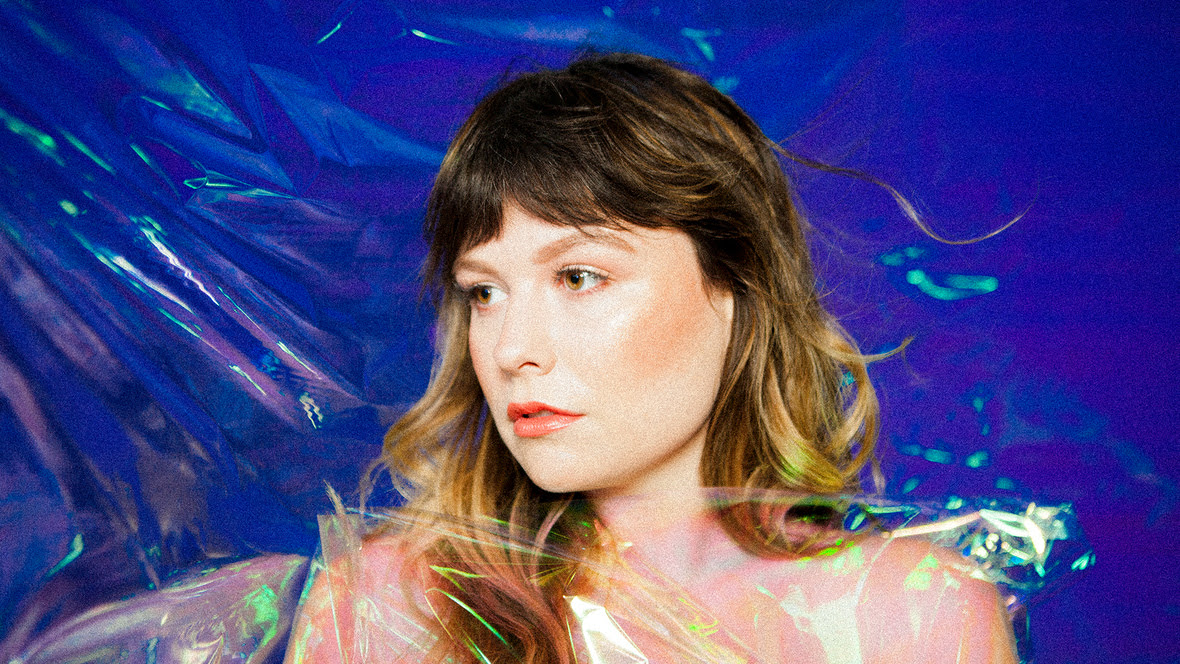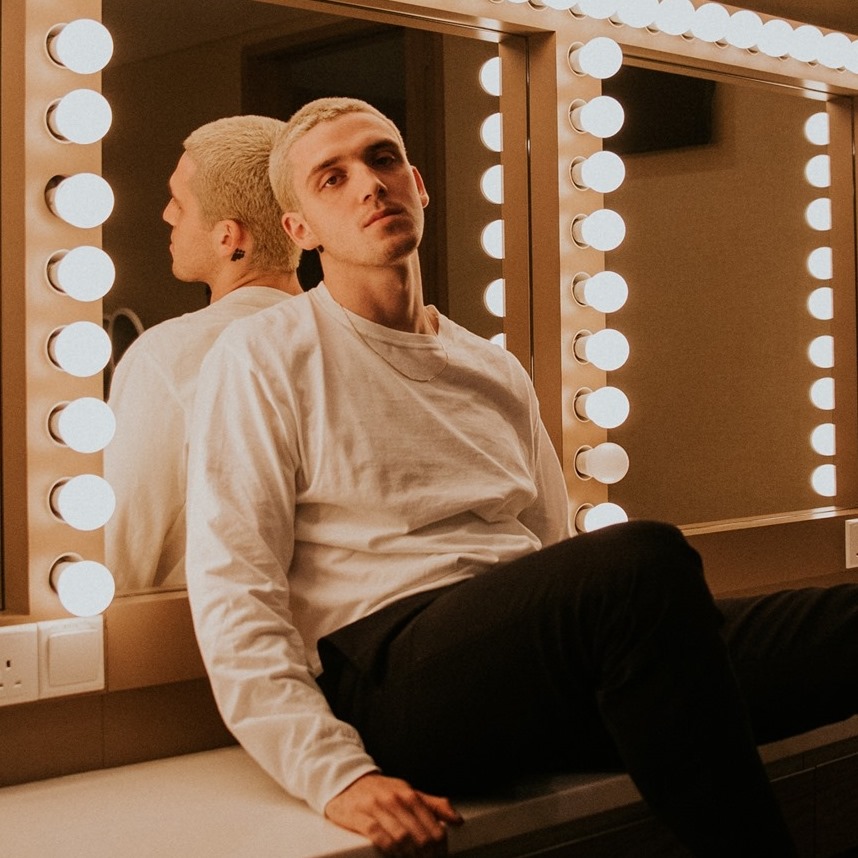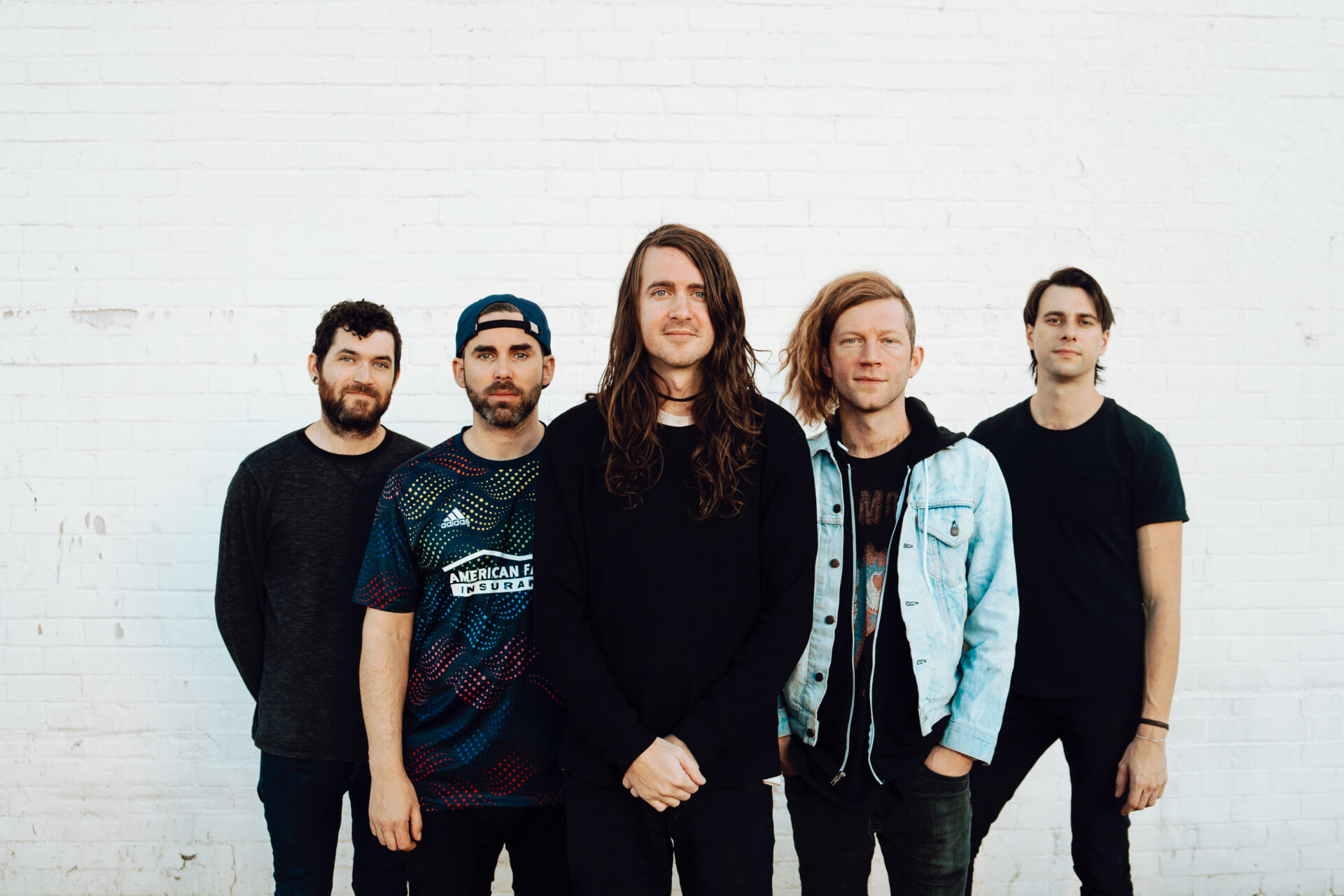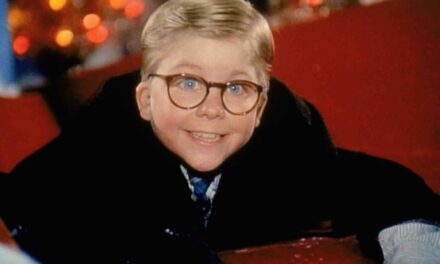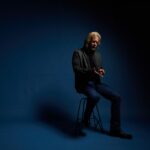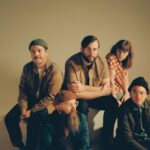“Philly’s been with Good Charlotte since day one,” Good Charlotte guitarist Benji Madden shared a few songs into the band’s set at the Fillmore Philadelphia: many years back, Philadelphia’s Y100 was the first radio station to play the band‘s single “Little Things.” The show had not sold out, though those in attendance were undoubtedly excited: before doors, a line wrapped long around the block.
The night began with a set from The Dose, a new Los Angeles-based duo consisting of Indio Downey (vocals, guitar – and, yes, son of Robert Downey, Jr.) and Ralph Alexander (drums). The Dose played grunge / garage-rock, in the vein of Nirvana and Sex Pistols. In contrast to the bands that played later in the evening, it was hard for the two-piece to compare as their stage presence generally less engaging; dressed in ripped jeans and baggy t-shirts, The Dose may have been more at home in a small, punk rock club.
Next to the stage was Knuckle Puck; the Chicago natives primarily played tracks from their two full-length albums, Copacetic and Shapeshifter. Knuckle Puck plays a brand of somewhat self-deprecating and sad pop-punk that’s also a lot of fun and entirely accessible to audiences. A highlight of the set was “No Good” (from their 2013 EP The Weight That You Buried), and as frontman Joe Taylor scream-sang “I’m no good, you’re no better”, even those in the crowd who had never seen them before were singing along.
Two years ago, Sleeping With Sirens headlined The Fillmore on their own tour, so it was hardly a surprise that a large portion of the crowd were fans of the band. Clad in all black, a few in leather jackets, there was no mistaking that they were a rock band – though their identity as kings of the post-hardcore “scene” was clear. Vocalist Kellin Quinn’s high-pitched voice was simultaneously commanding; everyone wanted to pay attention, familiar or not. In return, there’s no doubt that Quinn and his band mates care about their fans. When introducing “Better Off Dead” he mentioned that this tour was the last time some songs would be played live, as the band have a new record on the way. “This record changed my life, it brought be back from the grave,” he shared, and dedicated the record – which would have a portion of the proceeds donated to suicide prevention – to anyone dealing with mental health struggles. Sleeping With Sirens’ set also included fan-favorite sing-along like “We Like It Loud”, which got people off their feet, and “Go Go Go”, and “Don’t Say Anything”, during which rhythm guitarist Nick Martin left the stage to run all the way through the crowd to the back of the room.
Forming in 1996, Good Charlotte have been a band for 22 years, older than the members were when they started the band. It’s not surprising, then, that the fans themselves varied widely in age, and while most of the merchandise for sale featured designs referencing their new album Generation Rx, they also had a design for The Young and The Hopeless.
There was a clear anticipation in the crowd in the minutes before Good Charlotte’s set; while most – though not all – appeared to be longtime fans, sporting old merch designs, there’s always excitement in seeing a favorite band take the stage. And for many people, Good Charlotte is that “favorite band” – the band whose music has helped them through life’s hurdles. While Generation Rx was more cinematic and orchestral than 2016’s Youth Authority or 2010’s Cardiology – and the live set up reflected that, with skull banners and harsh, bright blue lighting to match the album artwork – it was also an album to give back to fans and connect with them, and that certainly was expressed in the live show.
“Generation Rx” transitioned smoothly to “Self Help”; even before its release as a single, it was one of the most relatable songs on the album, as frontman Joel Madden sang, “When no one cared about me, dreams were all I had.” They immediately threw it back to “The Anthem”, and while now, sixteen years since the song was released, Good Charlotte have a different perspective on what it means to be an outsider (high school is long in the past, and they’re no longer struggling to make ends meet), they still know how it feels to not quite fit in. Later in the set, “Little Things” – which displayed an upbeat attitude about the “little things” in life that have “made me who I am today” – further showed that they’ve never lost sight of their roots.
Throughout the night, Joel shared told stories from fans’ perspectives of “having a GC party” and “meeting my best friends at Good Charlotte shows.” It’d be easy for the sentimentality to come off as corny, but with occasional humor and dad jokes (“They said we were going to Philadelphia.. more like ‘You guys are Killing It-adelphia!'”) sprinkled throughout, it felt rather genuine. Joel admitted that years ago, he didn’t realize how important “Riot Girl” was, but shared with the crowd that now, “We sing it about every single one of you girls that’s here. I know the world is hard to live in sometimes and it doesn’t feel safe – we want you to keep being you, we want you to keep standing up for yourself, to keep speaking your mind, to keep expressing yourself.” While they’ve never been a political band, when introducing “Prayers”, Benji encouraged those in attendance not to get tricked in to racism, sexism, or inequality, and to “stand up for yourselves and one another and look at other human beings with compassion.”
The set list for the evening was largely similar to the songs the band have been playing live since their reunion in 2015, but things have changed for Good Charlotte over the years. They don’t come around as much anymore, playing nowhere near the 300 shows a year they did once upon a time. But despite some hiccups– Joel told the crowd he’d gotten sick the night before, so his voice was off – the band were still full of energy. While they’re no longer so young and certainly not so hopeless, cuts like “Hold On” – which Benji referred to as “one of the most important songs that we ever wrote” – and “The Young and the Hopeless” still rang true with a powerful message of choosing to fight in life’s toughest moments rather than give up.
It wasn’t all serious: “If you go to a Good Charlotte show, it’s just gotta be fun,” Joel remarked after “Dance Floor Anthem”, a clunky dance-punk banger whose post-breakup refrain of “I don’t wanna be in love” was as much a sing-along as it was a heart-on-your-sleeve confession. The 17-song set ended with “I Just Wanna Live” and “Lifestyles of the Rich and Famous.” Sixteen years later, there’s a triumphant irony in the fact that they got rich and famous thanks to a song about how celebrities complain too much. At the end of the day though, there’s no use in wasting time reading too much in to the meanings of big-picture things, because a Good Charlotte show is a good time. “When we bring this back in,” Joel said during the bridge of “Lifestyles”, “I want to see every single person jumping.” And jump they most certainly did.
Good Charlotte are currently on the Generation Rx Tour; head to their website for remaining dates.

